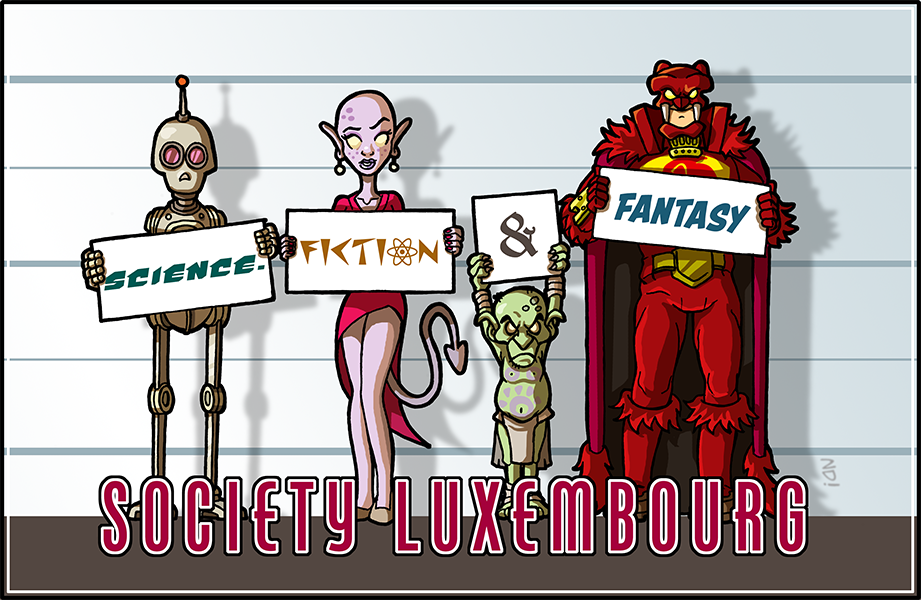Milo

(Text by Kiara Roth)
If I could have chosen my superpower, I would have picked invisibility or flying. Maybe time travel. Some fancy stuff that would make me look cool in front of my classmates or that I could use to get the things that I wanted. Something… you know, helpful.
Unfortunately, I was not granted freedom of choice. Instead, I was stuck with these snippets of other people’s memories that I never asked for; that imposed themselves on me when I needed them the least. They mixed with my own memories until I could no longer distinguish between what I had experienced myself and what others had. Until I got lost in my own head.
Halfway through my morning run in the castle park, it happened again. A dull throbbing behind my forehead, a slight tingling on my skin. That’s how the memories announced themselves. I hated it. I didn’t want it, this memory that wasn’t mine but masqueraded as such. Maybe I could escape it if I just ran fast enough, chasing the wind, focusing on reality.
So I ran until my muscles ached and my lungs were on fire. Still, the shadows and colors in my mind’s eye formed images. Two figures appeared in a gray drizzle, standing in front of a tall building. A church, perhaps? A soft voice whispered words to me which I did not understand in the whistling wind.
I did not want to understand them. They weren’t mine, after all.
Faster, faster, and faster. I narrowed my eyes—which, of course, did absolutely nothing—and ran along the winding cobblestone path that led up the hill to the castle. I stopped in front of the stone gate. My eyes fell on a star-shaped engraving that someone must have carved into the rocks.
The force of the memory nearly swept me off my feet. The world around me flickered, and the sound of voices surrounded me. Voices that were not from the present. I stumbled backwards, right into the memory.
I didn’t run from it; I had followed it. It had led me right here. And it captivated me, I sank into it, could no longer withdraw from it.
A giggle, a whisper, emerging clearly from the noise. It was familiar. I knew immediately where it came from. I knew his name.
“Milo,” I whispered simultaneously with the voice of a stranger. That’s when I realized that the building from the snippet of memory earlier had not been a church, but a castle. This castle right in front of me.
The sky darkened, sending tender droplets down on us. No, on them, on the people in that memory. Still, I wiped my cheek with the back of my hand and could swear I felt the wetness of the rain, just like a silent, pervasive longing spreading through me. An alien longing.
Milo and the man twirled. Milo held out his hand to him, they danced, and they spun. Spinning and spinning, until they were no longer in front of the castle, but on the beach, in the waves, in the sand. They whirled on, the memory catapulting us first to a bar, then to an apartment, then in front of a campfire under a star-filled sky.
This memory felt different from the ones I’d encountered before. More fragile and foggy. It disintegrated, slipped through my fingers like sand. The scenes were changing too fast to keep track of; the people in them were faceless, and the surroundings soon consisted only of vague outlines. In exchange, the sensations grew stronger. A warm feeling, reassuring and hopeful. A feeling that promised eternity and yet was so fleeting that I could not hold it. Milo was the only one who remained, and eventually, I gave in to the urge to whisper his name over and over again. Milo, Milo, Milo. The name turned into a melody that punctuated the changing scenes. He danced, he laughed, he was by my side.
No, by his side.
Despite the lack of stability, it felt so real, almost more so than my own memories. Or was this my own, just an estranged construction of my experiences? I couldn’t tell anymore.
But I had to find out.
To whom did the memory belong? Instinctively, I reached out for it, but the fog of oblivion swallowed the memory before I could grasp it.
I was myself again now, but I didn’t like it. I had to get that feeling back, at least one more time. I needed to keep following the memory, to capture it. Understand it.
I closed my eyes and ran my fingers over the carved star, feeling each line. An echo of the warm feeling coursed through my veins, pulsating to the rhythm of the melody I heard earlier. But the scenes did not return, the images faded more and more.
I opened my eyes and looked around. I tried to remember that I was here, in the present. The melody remained, as did the longing for the feeling that was not mine.
A gray-haired man in a black coat and with a walking stick strolled past me, our eyes crossed. In his face, I recognized the very same longing, and I knew it.
It was his memory.
“Mister,” I said quietly. Too quietly. He paid no attention to me.
“Mister,” I tried again, louder this time.
The man mumbled something, but he seemed to be talking more to himself than to me. I concentrated on the longing, letting the memory return to me. What usually happened without my doing was suddenly as difficult as if I were standing in front of a closed gate. Whenever I thought I could grasp the memory, it melted like fresh snow in the sun.
The man stopped, right in front of the carved star. He blinked a few times, looking at it in confusion.
If it was his memory, why didn’t it flare up again? Where had it disappeared to? I barely felt it anymore, heard only a faint resonance of the melody.
Then I understood. The fog, the fragility. The memory that kept disintegrating.
Was that …
Dementia?
The man continued to gaze at the star, and I was overwhelmed by the desire to show him what he had shown me earlier. Had he really forgotten everything?
“Milo,” I said, and he looked up at me. Affection gleamed in his eyes, although his expression remained impassive. The memory had to be there after all.
I hummed the melody that was in my head without letting go of the man’s gaze. I tried to share with him everything about Milo that he had shared with me before, to remind him of him.
The man stopped mumbling and looked at me with his pupils widened. Something in his expression changed, became more lucid. He extended his hands toward me.
“Milo,” he whispered.
I grasped them and the warm feeling washed over me. The memory flowed in my veins, and it spilt over to the man, giving him back what he thought he had lost.
A blissful smile spread across his face, he joined in with my humming. After a while, he let go of my hands and turned his attention back to the star. His fingers ran over the notches as mine did earlier, and the wind carried Milo’s melody away.
I walked on, slowly, filled with deep gratitude for my superpower, which for the first time in my life felt like a true superpower. After all, it gave me access to people’s most precious treasures.
What more could I ask for?


